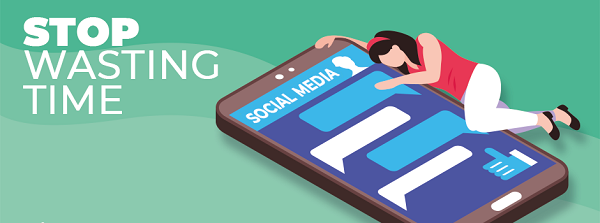How to Stop Wasting Time on the Internet (Scientifically Proven)

Your problem is that you often get distracted on the Internet during the time you are supposed to be working (or studying)? If you want to do something about it, here are some ideas to combat those distractions. In this article, I present how to stop wasting time on the Internet.
How to stop wasting time on the Internet
Psychologists are as worried as we are about this problem. The following compilation gathers some recommendations from specialists: scientifically proven ways in which we can stop procrastinating. It is not enough that you take a look. You will surely find something useful in it.
Start with the easiest
Although greater productivity is achieved when we begin with unpleasant or difficult tasks. Psychologists recommend that, if it is hard for us to start, lets the start at least complicated.
Getting started is a challenge, but once you overcome that obstacle, your brain takes a kind of momentum that allows it to work more effectively. The reason is due to a psychological phenomenon known as the Zeigarnik effect. It refers to when pending tasks are stored in your memory. Once you write them down or start completing them, your brain breaks free and performs much better.
Cheat your brain
Very difficult tasks are scary, which discourages and distracts us. However, by completing them, we overcome fear and feel calmer. How to beat immobility and help us take the first step? Cheat your brain like this:
Instead of thinking “I have to finish project X,” he thinks, “I must email to determine editorial guidelines,” and then “I must synthesize the guidelines and communicate them to my collaborators.” Something like that.
Think in parts. It’s about not repeating the word or phrase of terror to your brain. Thus, under deception, you will not be afraid to start.
Be kind to yourself
You may think that to avoid procrastination, you must be super strict with yourself. But science recommends that you take it easy, that you do not rebuke or Marty yourself. You already have a delay in tow. Being compassionate with you will help you make better use of time.
However, if you constantly face having started late, the task will be much harder to complete, and the process will leave you exhausted. So forgive yourself, and once you start, treat yourself well.
Get yourself a good why
It is always easier to perform tasks that we like, of which we are convinced. If it is hard for you to start, you can take a few minutes to ask yourself why it is worth doing. It is important to fulfill certain purposes. Convincing.
Dig deep inside of you and find a meaning that you can value on a personal level. Something justifies the fulfillment of the task.
Listen to yourself
Extreme perfectionism and fear of failure are a shortcut to wasted time. Science suggests that you listen to your inner self, even above productive thinking.
As soon as you are surprised thinking things like “this will end in catastrophe,” or “I need it to be perfect,” stop. It’s time to satisfy your anxiety. To do this, you should doubt your doubts.
Follow these techniques:
1. See how you get more distracted
Is it the email? Social networks? Do you entertain yourself reading many pages when you are researching for a job?
Knowing your frequent distractions will help you plan your work. Theirs is that you assign specific gaps to these activities. Put them in your schedule.
For example, the investigation? From 7 to 8. Look at the mail at 3 in the afternoon. Facebook, at …?
2. Prepare your work plan for the session
Make a list of tasks concrete and achievable in the time available.
3. Block pages
As you know, there are extensions that you can install in your browser to prevent impulse access to those pages that distract you.
For example, LeechBlock, for Firefox or Block site, for Chrome (I am testing this one, and it works very well).
4. Disconnect
It is the most effective option when you do not need the Internet to finish the job: Close the browser. Turn off notifications (yes, also on mobile). And get to work!
5. Give homework
Get fast and without thinking with the first one. To make that easier see 6.
6. Work in Blocks of time
Set a few minutes (30, for example) to concentrate fully on the task and move forward as much as you can. When the block is finished, rest for 2 to 5 minutes and get ready for the next sprint.
7. What if everything fails?
It may be that, despite the measures you take, you are distracted. If not with the Internet, with anything else. Quiet, that happens to all of us.
If you are surprised in full distraction, do not waste your time in it with the feeling that you have failed. Cut and get up, clear yourself.
Take a couple of minutes to stretch, go to the bathroom or take a walk down the hall. Meanwhile, go mentally retaking the task you were holding. And, now yes, get back into it.
Remember these three things:
1) It is a matter of practice
If you are prone to get distracted and are interested in improving on this issue, you can do it. Be patient and go practicing with what you notice works best for you.
2) We all have unproductive days
Days when the saint goes to heaven or when, for whatever reason, it costs us a world to concentrate. You have to count on them.
3) Rest and have fun
Respect your leisure and rest times. Perform pleasant activities (also far from the screen). That will help you focus when you have to work.

